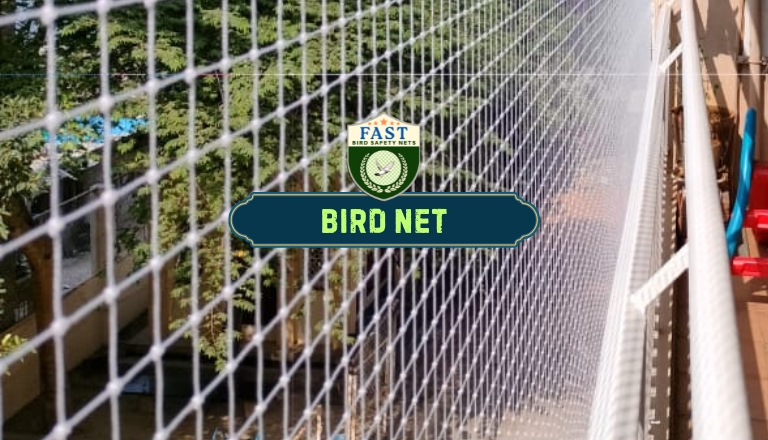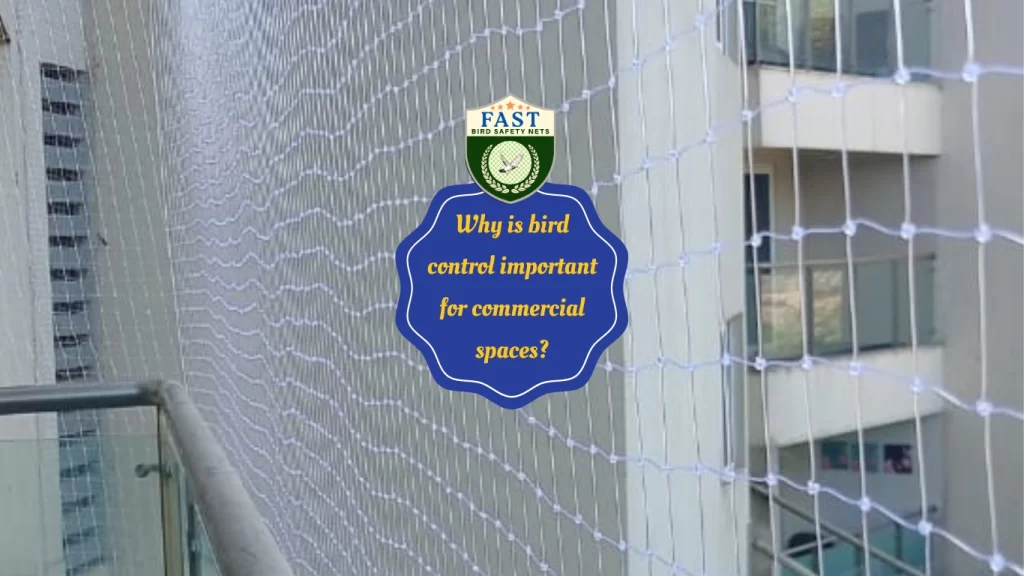Birds can be beautiful and beneficial to the environment, but when they invade commercial spaces, they can cause significant problems. Effective bird control is crucial for maintaining a clean, safe, and professional environment in commercial areas. Here’s why bird control is important for commercial spaces:
1. Health and Safety Concerns
Disease Transmission
Bird droppings can harbor a variety of pathogens that pose serious health risks to humans. Diseases such as histoplasmosis, cryptococcosis, and psittacosis can be transmitted through contact with bird droppings or inhaling airborne particles. This is particularly concerning in commercial spaces where employees and customers are frequently present.
Slip and Fall Hazards
Accumulated bird droppings can create slippery surfaces on walkways, entrances, and parking lots. This increases the risk of slip and fall accidents, potentially leading to injuries and liability issues for the business.
2. Structural Damage
Corrosive Droppings
Bird droppings are highly acidic and can cause significant damage to building materials over time. They can corrode metal, deteriorate concrete, and damage roofing materials, leading to costly repairs and maintenance.
Clogged Drains and Gutters
Nesting materials and droppings can clog gutters, downspouts, and drainage systems. This can result in water damage, roof leaks, and structural issues, especially during heavy rainfall.

3. Negative Aesthetic Impact
Unsightly Mess
Bird droppings, nests, and feathers can create an unsightly mess on buildings, signage, and walkways. This detracts from the professional appearance of the commercial space and can deter potential customers.
Damage to Reputation
A commercial space plagued by birds and their droppings can give customers and clients a negative impression. Maintaining a clean and bird-free environment is essential for preserving the business’s reputation and attracting clients.
4. Operational Disruptions
Noise Disturbance
Birds, particularly pigeons and seagulls, can create significant noise disturbances. Their constant cooing, squawking, and flapping can be disruptive to employees and customers, affecting productivity and customer satisfaction.
Nesting and Roosting Issues
Birds nesting in or around commercial spaces can lead to operational disruptions. They may block ventilation systems, cause electrical hazards, and even start fires with their nesting materials.
5. Pest Attraction
Secondary Pests
Birds can attract secondary pests such as mites, ticks, fleas, and rodents. These pests can further infest the commercial space, leading to additional health risks and pest control challenges.
6. Legal and Compliance Issues
Regulatory Compliance
Many regions have regulations regarding bird control and maintaining sanitary conditions in commercial spaces. Failure to comply with these regulations can result in fines and legal consequences.
Liability Concerns
Businesses can be held liable for injuries or health issues caused by bird infestations. Implementing effective bird control measures helps mitigate these risks and protects the business from potential lawsuits.
Effective Bird Control Solutions
Physical Barriers
Installing physical barriers such as bird netting, spikes, and wires can prevent birds from accessing nesting and roosting sites. These solutions are humane and effective in deterring birds from specific areas.
Deterrents and Repellents
Using visual and auditory deterrents, such as reflective objects, predator decoys, and ultrasonic devices, can discourage birds from settling in commercial spaces. Chemical repellents can also be used in some cases.
Professional Bird Control Services
Hiring professional bird control services ensures that bird infestations are managed effectively and humanely. Experts can assess the specific needs of the commercial space and implement tailored solutions to address bird-related issues.
Conclusion
Bird control is essential for maintaining a safe, clean, and professional environment in commercial spaces. By addressing health and safety concerns, preventing structural damage, and preserving the aesthetic appeal of the property, businesses can protect their reputation and ensure smooth operations. Implementing effective bird control measures is a proactive step toward creating a better environment for employees, customers, and the business itself.






